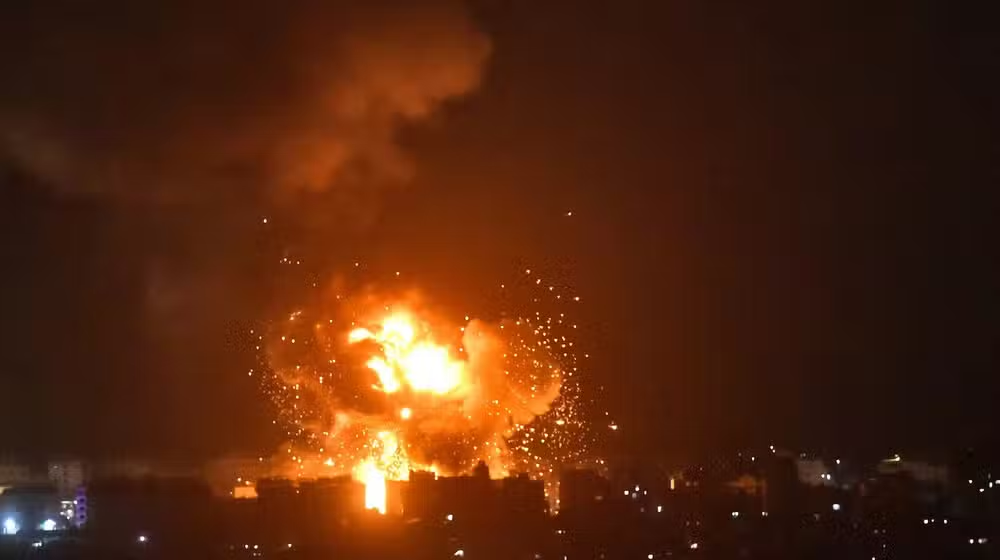India Launches Missile Strikes on Pakistan, Fueling Regional Tensions
Missile Strikes Hit Kotli, Bahawalpur, and Muzaffarabad
In a dramatic escalation of regional hostilities, the Indian military carried out missile strikes targeting key locations inside Pakistan, including Kotli, Bahawalpur, and Muzaffarabad. According to Inter-Services Public Relations (ISPR) Director General Lt Gen Ahmed Sharif Chaudhry, the strikes were launched from within Indian airspace and did not involve physical intrusion into Pakistani territory. Among the targeted areas was the Subhanullah mosque in Bahawalpur’s Ahmed East, while Muzaffarabad experienced multiple explosions, leading to a total power blackout. Initial damage assessments and casualty reports are currently underway.
Pakistan Vows Strong Retaliation
Condemning the attacks as “cowardly,” DG ISPR Lt Gen Chaudhry assured the nation that Pakistan will retaliate at a time and place of its choosing. “India’s reckless aggression will face a fitting response,” he asserted. Defence Minister Khawaja Asif echoed the warning, stating that Pakistan is fully prepared to defend against any form of aggression—be it air, land, or naval.
Backdrop: Pahalgam Attack and Rising Hostilities
The missile strikes follow heightened tensions after a deadly attack in Pahalgam, located in India-occupied Kashmir, on April 22. The attack claimed 26 lives, mostly tourists. India blamed Pakistan without presenting evidence, a charge Islamabad has categorically denied, calling for an independent international investigation.
Pakistan Enhances Security Posture
In a strong show of unity, Prime Minister Shehbaz Sharif visited the Inter-Services Intelligence (ISI) headquarters along with top officials, including Deputy PM Ishaq Dar, Defence Minister Khawaja Asif, and the chiefs of all three armed forces. The premier was briefed on the country’s strategic preparedness to counter conventional threats from India and assured full support to the military.
NIFTAC Inaugurated to Strengthen National Security
During his visit, PM Shehbaz also inaugurated the National Intelligence Fusion and Threat Assessment Centre (NIFTAC). The newly launched facility integrates over 50 federal and provincial agencies to form a unified national defense and counterterrorism platform, enabling real-time intelligence sharing and threat response.
India’s Water Threat Further Aggravates Situation
Tensions deepened when Indian Prime Minister Narendra Modi threatened to block critical water flows to Pakistan under the Indus Waters Treaty. Pakistan warned that any such move would be seen as an act of war, citing suspicious recent changes in river flows, which they claim indicate possible Indian manipulation.
READ MORE: Drone Strikes Hit Port Sudan, Escalating Conflict
International Community Calls for Restraint
Global powers, led by the United States, have called for restraint and diplomatic resolution. U.S. State Department spokesperson Tammy Bruce urged both nations to avoid further escalation and reaffirmed Washington’s commitment to regional stability through continued engagement with both governments.
Afghanistan Supports Pakistan Amid Crisis
In parallel diplomatic efforts, Afghan Foreign Minister Amir Khan Muttaqi expressed solidarity with Pakistan during a meeting with Deputy PM Ishaq Dar. He appreciated Pakistan’s initiatives to ease trade and travel and affirmed Afghanistan’s commitment to regional peace and bilateral cooperation despite the current crisis.
Conclusion: Region on Edge
With Pakistan preparing its promised retaliation, South Asia stands on the brink of a dangerous confrontation. The coming days will be crucial as international and regional actors keep a close watch on the developing situation.




